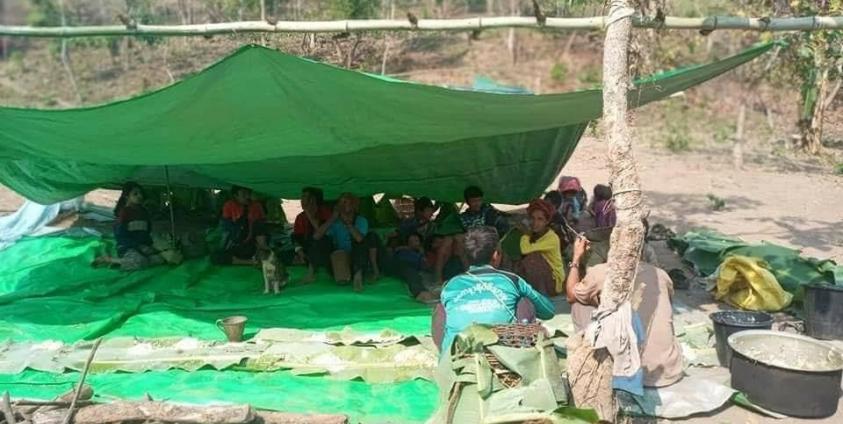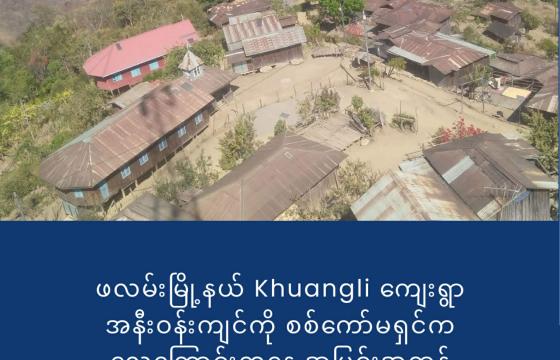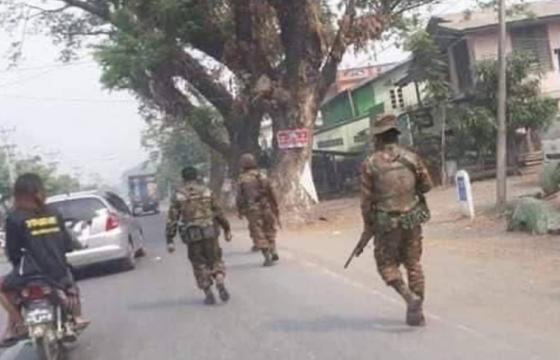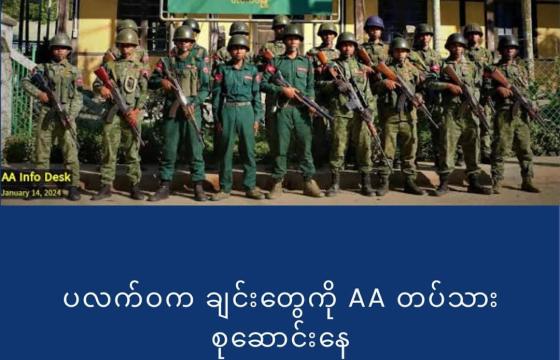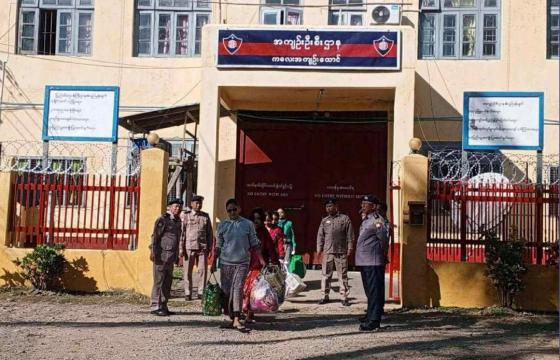There had been more malaria cases detected in war refugee camps in Chin State during the rainy season of 2022 than the entire year of 2020, Chin Health Organization reported on July 8.
Due to the fighting in the region, the locals fled and hid in the forest areas that led to the increment in the number of people who contracted malaria, according to Chin Health Organization.
In addition to mere ailment cases, there had also been deaths due to severe malaria (In the case of malaria parasites reaching the brain), said Chin Health Organization, which is assisting war refugees.
This year's rainy season has also become a record period for the highest number of malaria infections. The Chin Health Organization (CHO) reported on July 8 that the number of malaria patients diagnosed this month in some townships within reach in Chin State was higher than the number of patients in the entire year of 2020.
A local man who fled war in Sami, Paletwa Township said “In the first 2 months of this rainy season, almost every household caught illness. Some people died. I couldn’t say the exact death list. Even though I got sick, I took medicine in time and recovered. Majority of the sick people couldn’t get necessary medicine. The situation was pretty bad”. There was nowhere to buy medicine when people got sick, he also added.
Blood samples were taken from about 150 war refugees from 5 townships within reach in Chin State, half of them tested positive of the malaria parasite, an official of the Chin Health Organization said.
Political complexities after 2021 and 2022, insufficiencies in distributing mosquito nets during Covid period and difficulties in transporting medicines lead to the shortage of antimalarial drugs and other medicines hence situations turned worse, the official of the Chin Health Organization explained.
The Chin Health Organization had warned that if the mosquito nets and medicines needed to prevent and treat malaria were not available in time, the health problems would be far more alarming. Health professionals, social organizations, religious societies, especially NGOs and INGOs and the public should cooperate to fight against malaria, the Chin Health Organization also urged.
As more and more people fled the war, the refugee camps became more densely populated. According to the Chin Health Organization, the situation of food security got worse and public health problems also looming large under such dreadful conditions.
Due to the intense fighting between the Arakan Army (AA) and the Military Council troops in recent days, the number of people fleeing the war is increasing every day, said residents of Sami in Paletwa Township.
A resident from Sami said “We heard news that the Military Council is planning to send some people who fled the war back to their homes. But recently, residents from 3 more villages came and took refuge to escape from the battles”.
Paletwa Township is composed of many villages and is one of the most populated cities in Chin State.
Chin ethnic groups such as Khami, Kanungso, Anu, Mara and Leikham live in Paletwa. The majority of the Paletwa residents are from Chin ethnic groups and Rakhine, Bama, Mon, Shan, Kachin and Kayin people also live there.
As for the religion sector, Christianity is the most worshipped religion followed by Buddhism and Hinduism. There are some people who follow Islam and other religions. 0.148% of the township’s population are members of foreign tribes from Bangladesh, India and Marama people.
Fierce battles broke out between AA and the Military in 2018 and the local people had to flee their homes because the armed clashes spread to Paletwa.
Continuous Fighting in the region nowadays forced locals to displace the nearby towns and villages and some of them decided to take refuge in Mizoram State of India close to the border.
Shortage of basic consumer goods and medicines occurred due to the military tensions, armed clashes and disturbances in transport routes, the locals said.
Chin Health Organization opened clinics in the Town of Aizawl, Mizoram State in India in collaboration with BM Hospital, MSU and MRRC.
Township-specific mobile teams were also formed to provide healthcare to the displaced people fleeing the war in Chin State who couldn’t access proper medical healthcare systems due to the political hardships.
Chin State has a population more than 478000 and about 90 percent of the population are Christians. According to the records released by some Chin social organizations, about 20 percent of Chin State’s population had fled their homes due to the battles.


